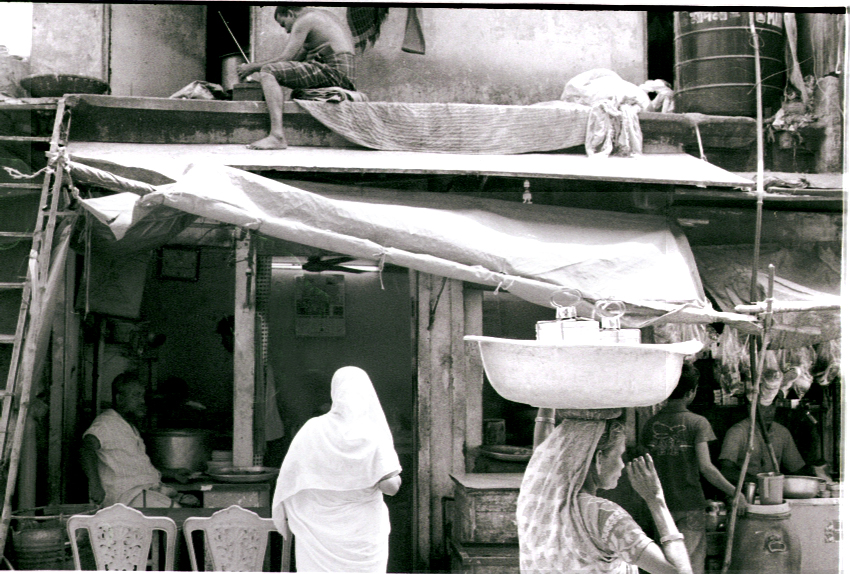
The Liva Collective
presents
BANG BANG BANGLA!
The necessary processing of an overwhelming experience
Text and photographs by Bartolomeo Pampaloni

family on the boat
Bangladesh

workers on the docks, Dhaka
The necessary processing of an overwhelming experience
The necessary processing of an overwhelming experience
Part I : How I became accustomed to Bangladesh
Chittagong railroad station
Entering Bangladesh is breaking the sugary tissue paper that protects our lives in the lands of welfare, dazzled by the merciless light that doesn’t warm up, it burns. My eyes burn from the blazing sun. Fumes from exhaust pipes and the unfamiliar stench of decomposing waste fills the air and mingles with the fragrance of unknown spices rising from the thousands of pans standing on bricks at the sides of the streets. A woman throws ghee into a pan resting on a fire made of sticks, in preparation for the food she will sell to passers-by. The smells coagulate in the humid air, where they stagnate without the blow of the soft wind to break it down.

a swing in the slum
But the primordial experience of Bangladesh is not the smell: it is the noise. Because Bangladesh does not know silence, peace or rest: Bangladesh is a constant flow of micro-activities; thousands of rickshaws, painted trucks, bikes, people walking in bare feet, in sandals; overcrowded trains, wrecked ships, canoes, and caravel fishing boats which squeeze through the street.

workers in the ship breaking yards, Chittagong

after the train
Over there someone lugs bricks; another cooks on a fire; another fills up a tank of water; a child uses a plastic bag as a kite; someone sells cigarettes per unity, yet another has a bunch of bananas on his head; there are pineapples, cucumbers, skinny chickens and living fish. A constant buzz of energy flows down the streets at every hour of the day; a complex of horns, rickshaws’ bells, drivers’ screams, reverbs of ratty old silencers and engines that are no longer in use in the western world.
Bangladesh never rests because Bangladesh is a huge bazar. Old Dhaka is archetypal of Bangladesh: a dense net of small streets where business never stops. I wonder how Old Dhaka has evolved over generations, and whether my experience is similar to that of an ancient traveler, having arrived in the gulf of Bengal on a ship, sailing along the inner rivers looking for potential new markets.

the shop, Dhaka

in the old town of Dhaka

ship breaking yards
Here in Bangladesh, there is a peaceful submission to the wefts of destiny that can be perceived as inscrutable and unassailable here more than anywhere else. Because here a human is very small, a figure that constantly merges with thousands of others – its bounds are as fleeting as its life. Here a human is a negligible bolt of a noisy, steaming, chaotic device.
In Bangladesh, everybody finds something to do. It doesn’t matter how humble the job is, how repetitive, or exhausting it is – it is done silently, day after day, until exhaustion.

the railroad slum, Dhaka

the young worker
The flame of life burns down fast over here: there’s no time for boredom, disappointment or disagreement and the days repeat themselves like notes of different value on the same line of the stave.

the construction company, Dhaka


ship breaking yards

